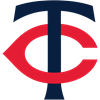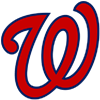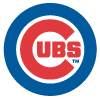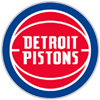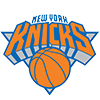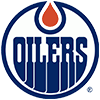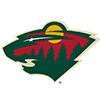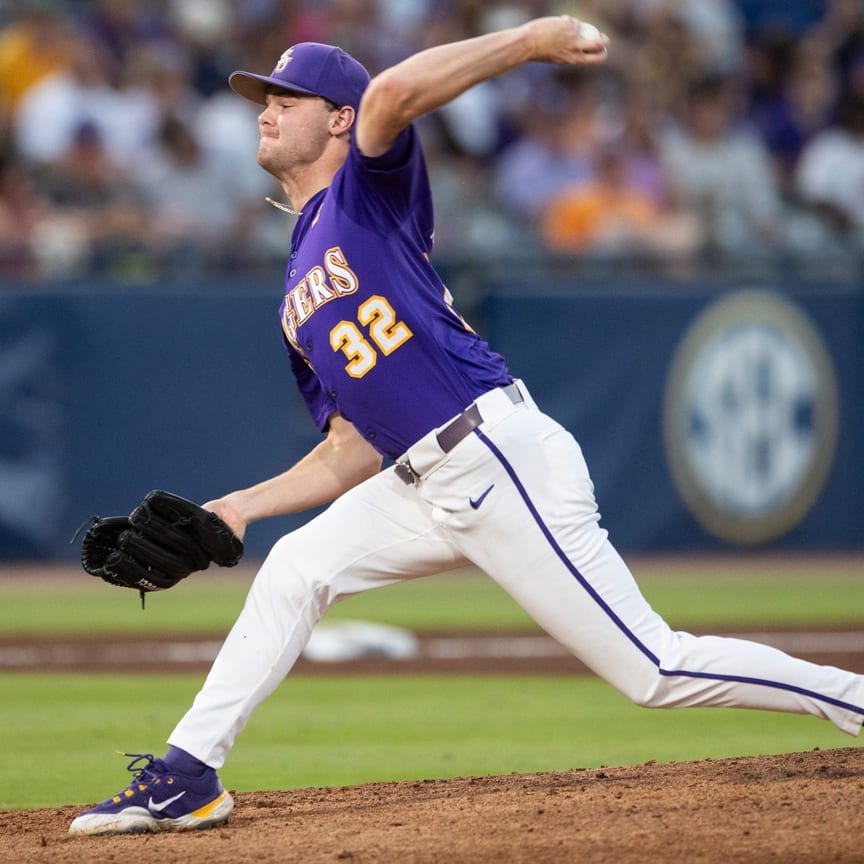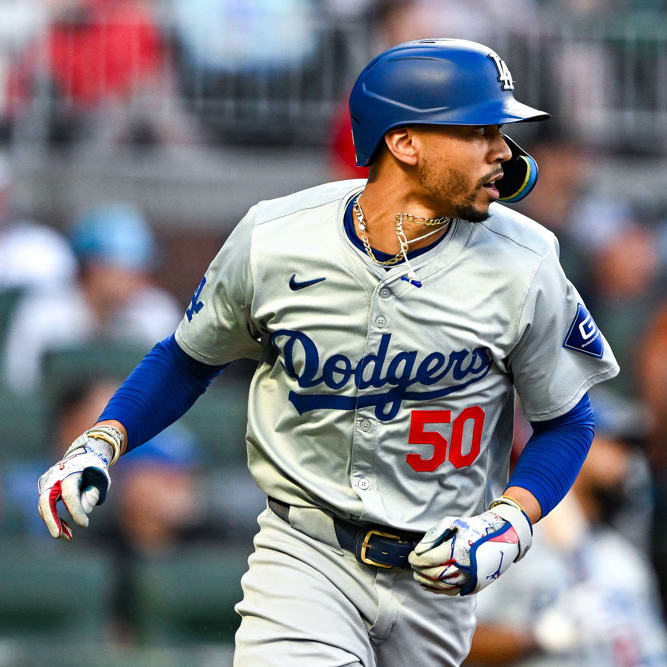Jinxes aren't real, but if you allow yourself to get too cocky after a nice April start, your team can stumble and fall in no time. It's easy to get complacent when it seems like everything's going right. In fact, grinding in FAAB and being careful with weekly lineup decisions becomes ever more necessary. A first-place team carries a target on its back. Come August, those within striking distance know exactly what categories they need to catch up. Of course, counting cats like runs, stolen bases and strikeouts are easier to attack, but ratios deficiencies (average, ERA, WHIP) can also be overcome, especially if getting Gsellman'd or being too Kuhl for school adds up quickly.
I've got five NFBC RotoWire Online Championship teams, and they're running guns blazing. Four of them are in first place and rank among the top 100 out of nearly 1,800 entries. Chris Owings and James Paxton? Drafted a bunch of shares. Ryan Zimmerman? Added him on four teams two weeks ago to hold down my CI until guys like Beltre and Miggy return. I love the way my teams are constructed, but I worry about and treat them the same way I do my fifth not-so-good squad that's injury-riddled and off to a slow start. Knowing how quickly regression can rear its ugly head in this wacky world of fantasy baseball, I know that these teams have some cold stretches ahead of them and I need to be on my toes constantly.
Jinxes aren't real, but if you allow yourself to get too cocky after a nice April start, your team can stumble and fall in no time. It's easy to get complacent when it seems like everything's going right. In fact, grinding in FAAB and being careful with weekly lineup decisions becomes ever more necessary. A first-place team carries a target on its back. Come August, those within striking distance know exactly what categories they need to catch up. Of course, counting cats like runs, stolen bases and strikeouts are easier to attack, but ratios deficiencies (average, ERA, WHIP) can also be overcome, especially if getting Gsellman'd or being too Kuhl for school adds up quickly.
I've got five NFBC RotoWire Online Championship teams, and they're running guns blazing. Four of them are in first place and rank among the top 100 out of nearly 1,800 entries. Chris Owings and James Paxton? Drafted a bunch of shares. Ryan Zimmerman? Added him on four teams two weeks ago to hold down my CI until guys like Beltre and Miggy return. I love the way my teams are constructed, but I worry about and treat them the same way I do my fifth not-so-good squad that's injury-riddled and off to a slow start. Knowing how quickly regression can rear its ugly head in this wacky world of fantasy baseball, I know that these teams have some cold stretches ahead of them and I need to be on my toes constantly. There are four tenets I continually repeat to myself:
- Don't chase two-start pitchers simply because they have two starts
- Don't ever take zeros (maintain backups at each position for injury coverage)
- Don't be afraid to add unsexy players with strong platoon splits for the week
- Don't chase the shiny new toy unless you've justified it with your homework
I've covered these topics ad nauseam in my intros over the last few Barometers – check them out if you haven't. Most veteran NFBC players know the drill by now, and it's a big reason why they're consistent and successful in this format.
You might occasionally land on a worthy two-start pitcher who provides value to your team all season, but it's usually a dangerous endeavor. New Amir Garrett owners were greatly humbled against a hot-hitting Brewers squad last Monday (nine earned runs) after his hot start. Same with those in 15-teamers who got popped for seven earned by Jhoulys Chacin coming off a great home start the week prior. It's the beginning of May, and it's much too early to try addressing a deficiency in strikeouts if it comes off the arms of borderline waiver-wire guys with matchups that are tough on paper.
Taking zeroes at a position is inevitable if an injury occurs Monday and you can't take your guy out in NFBC until Friday. But if you lose Miguel Cabrera on a Monday and don't have a first baseman (or corner infielder) to cover, that's on you. It's one of the reasons why we stress roster flexibility – not having too many stashes (minor-league prospects or guys out longer than a month). It's also why multi-position players like Owings, Ben Zobrist, Matt Carpenter and Yangervis Solarte deserve that extra bump on draft day. Scott Jenstad talks about it a lot. As someone who lost his Main Event league by a single run years ago, the importance of avoiding zeroes can't be overstated.
The platoon-split guys are better suited for your 15-team NFBC leagues, but they work in smaller leagues as well. The 15-team bunch with strong handedness splits includes Robbie Grossman, Martin Prado, Seth Smith, Matt Joyce and Adam Frazier. With the exception of Prado, most of these guys are usually available and should be utilized when facing a predominant number of lefties or righties in a specific period, especially since you'll see them hitting higher in the lineup.
Finally, the shiny new toys. I'd like to say I'm the "proud" owner of Cody Bellinger, Christian Arroyo and Jose Berrios in my NFBC Main Event (all via FAAB under $60 each), but what this signifies to me is my weakness: young players who can hurt me just as much as they can help. You'll never see top players like Lindy Hinkelman, Dave Potts or Stephen Jupinka have an overabundance of young studs on their NFBC teams, yet you'll usually see them at the top of the leaderboards come year end. Instead, you see them astutely chipping away in FAAB (in small dollar amounts) for the Grossmans and Joyces of the league, with an occasional sly pickup (and subsequent drop) of a Miguel Gonzalez or Ty Blach for a successful two-start week. If they're in the middle of the pack, rest assured they'll find a way to chip ahead and climb their way to the top – slowly but surely.
Needless to say, just like the best artists and musicians hone their craft, it comes down to attention to detail. They say April showers bring May flowers, but the exact opposite can ring true if you step away for too long and stop watering your roto garden.
RISERS
Aaron Judge, OF, NYY
What more could you ask for from a 30th-round draft pick who wasn't assured of a lineup spot in the spring? Judge had one of the most productive months in all of baseball (.303 with 10 homers, a steal, 20 RBI and 23 runs). Only Ryan Zimmerman overshadowed him in terms of production last week. Judge did crush four balls out of the park, including three at home off Orioles pitching in Friday and Saturday's games. Most impressive was the small K:BB sample (7:7), escalating his walk rate to nearly 15 percent heading into May. Judge has not been chasing too many pitches out of the strike zone, as his 20 percent O-Swing% ranks him among the top 10 in the majors. At some point, the Yankees will slot the 2013 first-rounder in as their cleanup hitter over Starlin Castro – possibly as early as this week. It would be foolish to expect a similar month of production out of Judge in any other month this season, but it's hard not to imagine him ending the year with 30-plus homers and 100 RBI. The lone concern will be his batting average, which will likely dip below .275 when all's said and done. Judge is a future star in this league, and it looks like the future is now.
Matt Wieters, C, WAS
The entire Nationals offense is firing on all cylinders. Their production was of course accentuated by a trip to Coors Field and that 23-run outburst against the Mets on Sunday. Wieters spends most of his time hitting seventh or eighth in a stacked lineup, yet he ranks as the top-hitting catcher as we move into May with a .301 average, four homers, 12 RBI and a steal. He's currently posting a career-best walk rate (12.9 percent) and strikeout rate (15.0 percent), plus an ISO over .200 for the first time. Let's not forget Wieters was once a big-time prospect who was selected fifth overall back in 2007 and posted three consecutive seasons of 20-plus home runs with the Orioles before having Tommy John surgery in 2014. He's a big guy (6-foot-5, 230 pounds) with a powerful bat, and he should continue producing at a steady clip, ending the season as a top-five catcher alongside the likes of Buster Posey, J.T. Realmuto and Jonathan Lucroy (whenever he gets his groove back).
Michael Brantley, OF, CLE
It's hard to imagine a guy hitting in such a prime lineup spot in a great lineup flying under the radar, but there just hasn't been all that much buzz about Brantley after a solid first month. Brantley ranks among the top 20 outfielders with a well-rounded stat line – .308 with five homers, 17 RBI, 13 runs and three steals. Most importantly, there hasn't been a peep about the shoulder injury that weakened him and kept him off the field for virtually all of 2016. We're seeing a transformed player in Brantley this season – one who's hitting for power and crushing the ball. His flyball rate is on par with his career rate (30 percent), but Brantley ranks among the top 10 hitters with a 48 percent hard-hit rate and is posting a .244 ISO, nearly double his career mark of .132. The key with Brantley is that he stays healthy and contributes the entire season. If so, we're talking about major profit for a guy drafted as an OF4 who should provide substantially across all five standard roto categories. It will be interesting to see whether this newfound power is sustainable and whether he can top his career-best 20 home runs from 2014. Regardless, nearly 200 combined runs and RBI along with 15 steals and an average between .290 and .315 should make those who drafted him very happy.
Patrick Corbin, SP, ARI
It's always a tangled web we weave dealing with pitchers who call Chase Field home. Corbin broke out in 2013, posting a 3.41 ERA and a 14-8 record in 32 starts (208 innings), fell victim to Tommy John in the spring of 2014, and returned in 2015 to post an incredibly solid 4.8 percent walk rate, and a 3.60 ERA in 16 starts. Last season, Corbin failed to display his typical control, as we witnessed his walk rate nearly double. His disastrous 5.15 ERA kept him out of mixed-league prominence. However, Corbin has been splendid so far this season, as he's been limiting the walks again. In six starts, Corbin has walked more than two batters just once, posting five quality starts along the way. Corbin's strikeout rate will remain right around the league average, though he did post 17 in 13 innings in back-to-back games against the Padres in mid-April. Corbin is relying a bit more on his slider this season, and we've seen a minor bump (nearly a full tick) on his fastball (92.3 mph average). Corbin is also allowing significantly less hard contact (28 percent) than he did last year (38.5 percent). We still need to pick our spots with Corbin (hope you didn't start him at Coors Field this week), but he's a viable spot starter in 12-team leagues who should be universally owned in deeper formats.
JC Ramirez, SP, LAA
The 28-year-old reliever-turned-starter is the shiny new toy who apparently deserves our attention (and ownership) after three consecutive successful outings. Ramirez has compiled a 25:5 K:BB over his last three starts, allowing just 12 hits in 17.2 innings. He's spent most of the last 10 years at different levels of the minor leagues with five different teams (Mariners, Phillies, Indians, Diamondbacks and Reds), coming up through A-level ball as a starter before being converted to relief by the Phillies in 2012. JC-Ram has a four-pitch repertoire that features a nasty cutter and an excellent slider. With Tyler Skaggs out 10-to-12 weeks and no timetable for Garrett Richards, Ramirez appears to be entrenched in the Angels' rotation. Allowing free passes remains his Achilles' heel, but his stuff looks vicious. Just remember that Ramirez is much older than this new crop of arms like Antonio Senzatela and Amir Garrett, and he shouldn't be compared to them. Continue to start him for now; just be careful when he visits tough parks in the AL East.
Cain has been excellent this season, but his 4.34 xFIP should serve as a warning that the 2.30 ERA isn't a full resurgence to his heyday. His strikeout rate (19 percent) is on par with last season, but he's improved on the free passes and (most importantly) reduced his HR/9. Blach handled business in two home starts last week (seven hits, two earned runs, three walks in 12 innings), but he offers very little upside in terms of punchout ability. The Giants could be biding their time with Blach until prospect Tyler Beede is ready, but we never know what may arise on the injury front. The key with these two is to use them for home starts and be extremely cautious with road ones. Cain will likely hit the DL at some point, but until then, he's the preferred option if you're deciding between the two.
Honorable Mentions:
Hanley Ramirez, 1B, BOS – HanRam always gets his stats, so we need not worry that he's started off slowly. He finally showed a bit of that typical flicker in his bat, hitting .411 with two home runs last week. Expect a typically solid average-and-power combo from him as Boston's hangover from losing David Ortiz steadily fades away.
Hernan Perez, 3B/OF, MIL – Another slow starter due in part to inconsistent at-bats, Perez filled up the box scores last week. In 22 at-bats, Perez hit .409 with a 1.440 OPS, two homers, two steals, eight RBI and seven runs. There's a small chance Ryan Braun hits the DL with his recent ailment, which would be huge for Perez in terms of consistent playing time. Perez is Starling Marte lite (but suspension-free!), and he particularly crushes southpaws (.437 wOBA).
Chris Owings, SS, ARI – A pleasant surprise to some, but a late-round target to others. Drafting Owings was all about getting a piece of that DBacks offense this year, though even his biggest supporters did not expect this type of April production (four homers, seven steals, 19 RBI). Owings is another guy with first-round pedigree, and he was successful on the basepaths last year (21 steals on 23 attempts). He hits second against southpaws and usually seventh against righties. Even if he pops only another handful of home runs, you're going to get more than you bargained for with another 20 to 30 steals. At this point, I'd rather own Owings than Tim Anderson, Asdrubal Cabrera and possibly even Troy Tulowitzki.
FALLERS
Alex Bregman, 3B, HOU
There is certainly some concern with Bregman, given his top-100 ADP in spring drafts, but all we can really do is be patient. If you drop Bregman in your 12-teamer, you will likely regret it. Whether you continue to play him while he's hitting near the bottom of the Astros' lineup is different story altogether. Bregman has not helped fantasy owners whatsoever – zero home runs and just six RBI in 84 April at-bats. On the flip side, 2015's No. 2 pick has not entirely been slumping – he's been making decent contact (79 percent). He's hit safely in 15 of his last 18 games and has even improved upon his rookie-year strikeout rate (from 24 percent down to 18.4). There will come a time soon when Bregman heats up and forces the Astros' hand to bat him second, but for now, we simply have to bide our time until we start seeing some production. It's worth remembering that Bregman managed just two hits in 38 at-bats upon promotion last July, only to hit .300 with eight homers and 32 RBI in his remaining 173 at-bats.
Mike Napoli, 1B, TEX
Big Nap sure has stunk up the joint, allowing opportunity after opportunity pass him by from that juicy cleanup spot in the Rangers' lineup. Napoli crushes the ball when he connects, as we saw in last year's 34-homer campaign. He hit three long balls last month and of course kicked off his 'fallers' week with a Monday home run, but the veteran still managed to just hit .146 along with a despicable .224 OBP in April. His walk rate's fallen by half from last year's 12 percent mark, and he continues to strike out in nearly a third of his at-bats. Old, stubborn, low-contact sluggers like Napoli always tease you when they go on power binges, but the sub-.230 average really drains a good squad. Twenty-five or so homers wouldn't be shocking at all, but I'd much rather take a chance on a younger power hitter with upside like Justin Bour.
Alcides Escobar, SS, KC
There's no pulling punches here: Escobar is worthless in all fantasy formats. I own him in my 15-team auction, where Modica and I got him for a buck, but we simply can't move away from him given the lack of alternatives there. (Adeiny Hechavarria? No, thank you.) Escobar is 30 years old and hitting below the Mendoza line from the bottom third of the Royals' lineup, and he's yet to even attempt a stolen base this year. Steals are supposed to be his primary source of value. Sure, he may go on a run and hit .330 for a three-week stretch, but if he's not running or leading off, he doesn't deserve your valuable roster spot. Remind me to actively address this situation in FAAB this weekend.
Yasmani Grandal, C, LAD
I watch almost every Dodger game and thought we'd see a homer binge out of the Yazmanian Devil, but that time has not yet arrived. He had one of the worst at-bats you'll ever see against Joaquin Benoit on Sunday, and it pretty much sums up his struggles at the plate: a gift down the middle that he didn't swing at followed by two whiffs at outside-the-zone garbage. I noticed Grandal had completely shaved his head and goatee, perhaps in an effort to shed some of those demons. Grandal does have crazy pop – we witnessed it last year, when he knocked the ball out the yard 27 times – and he's one of the better backstops at getting on base via the free pass (14 percent career walk rate). The struggle will always be making contact and staying consistent at the plate. Even with his power, it's hard to expect him to finish as a top-five catcher if he doesn't find a way to raise that stinky .220-.235 annual average into something respectable.
Kevin Gausman, SP, BAL
Gausman has been getting tagged viciously, throwing meatballs right down the middle and failing to keep his offerings down in the zone. He's had two decent outings in six starts, but the other four have been downright despicable – 22 earned runs over 22 innings. The righty's served up six home runs in his last three starts; worst of all, he hasn't struck out more than four batters in any game. That's odd for a guy who struck out nearly a batter per inning last season. Gausman doesn't appear to be hurt, nor has his velocity dippe, but he's generating fewer swinging strikes (nine percent) compared to his average over the last two seasons (11.5 percent) -- and yet he's not giving up any more hard contact than he did last year. At this point, Gausman can easily be benched, but I won't believe he's a lost cause unless some hidden injury surfaces. The key with Gausman is to see that bounce-back start first and be sure to pick your spots. Owning him is just another friendly reminder that we want to avoid AL East arms if at all possible. We have enough stress in our day-to-day lives – why add to it?












